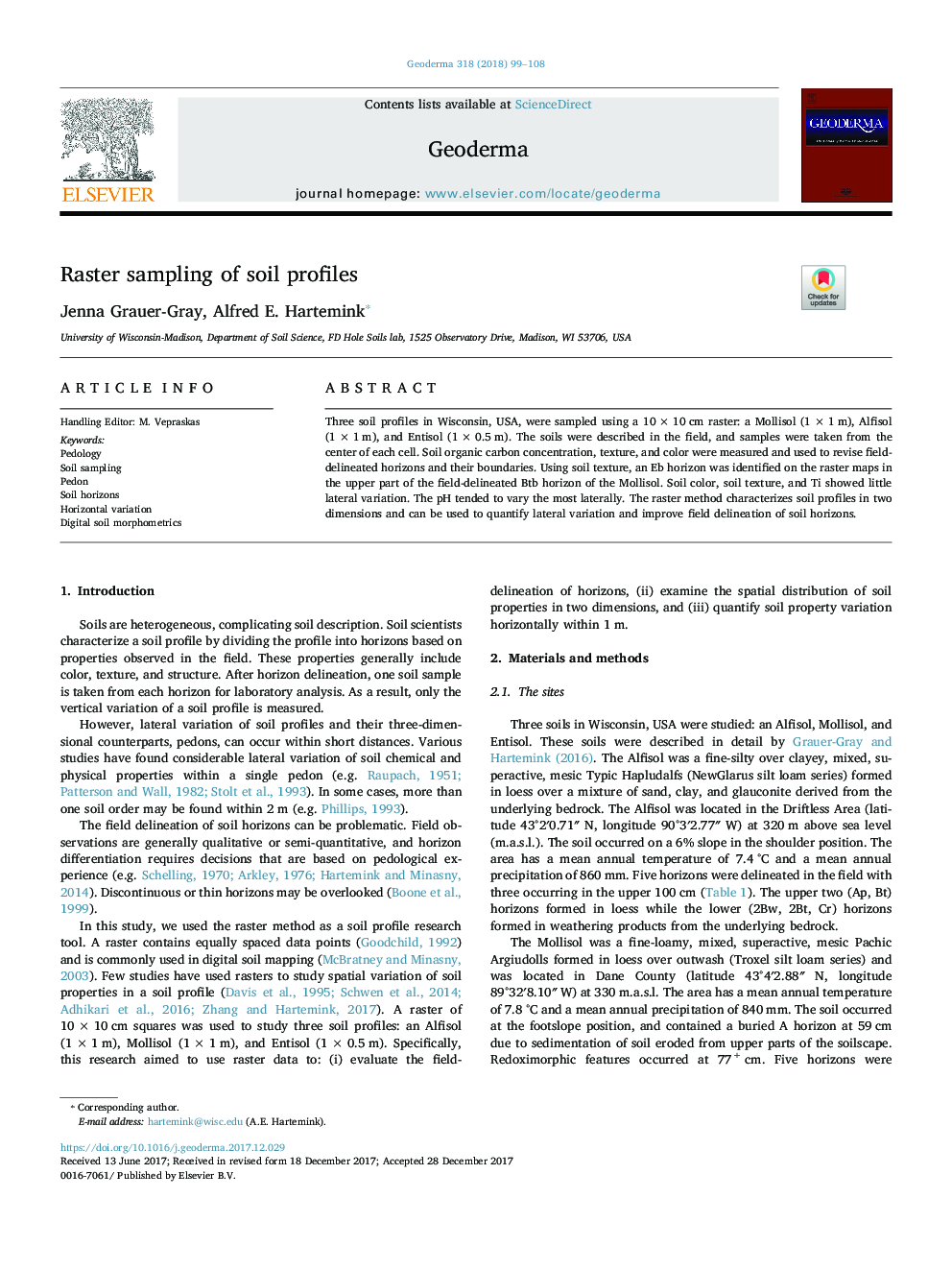| Article ID | Journal | Published Year | Pages | File Type |
|---|---|---|---|---|
| 8894188 | Geoderma | 2018 | 10 Pages |
Abstract
Three soil profiles in Wisconsin, USA, were sampled using a 10Â ÃÂ 10Â cm raster: a Mollisol (1Â ÃÂ 1Â m), Alfisol (1Â ÃÂ 1Â m), and Entisol (1Â ÃÂ 0.5Â m). The soils were described in the field, and samples were taken from the center of each cell. Soil organic carbon concentration, texture, and color were measured and used to revise field-delineated horizons and their boundaries. Using soil texture, an Eb horizon was identified on the raster maps in the upper part of the field-delineated Btb horizon of the Mollisol. Soil color, soil texture, and Ti showed little lateral variation. The pH tended to vary the most laterally. The raster method characterizes soil profiles in two dimensions and can be used to quantify lateral variation and improve field delineation of soil horizons.
Keywords
Related Topics
Physical Sciences and Engineering
Earth and Planetary Sciences
Earth-Surface Processes
Authors
Jenna Grauer-Gray, Alfred E. Hartemink,
